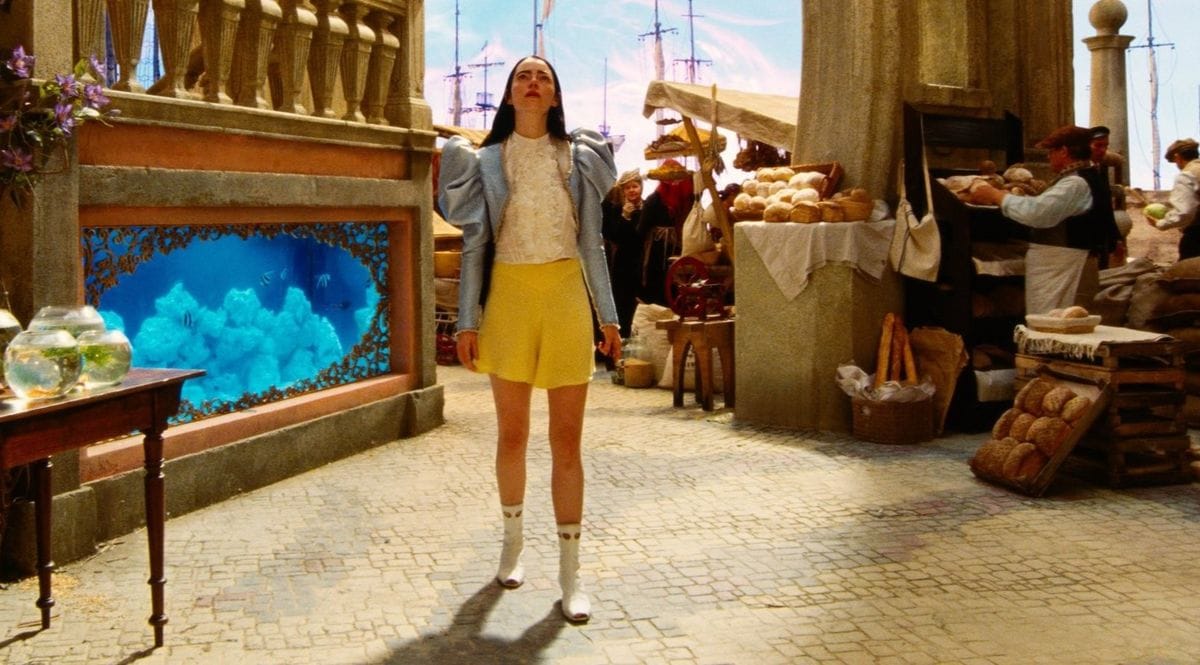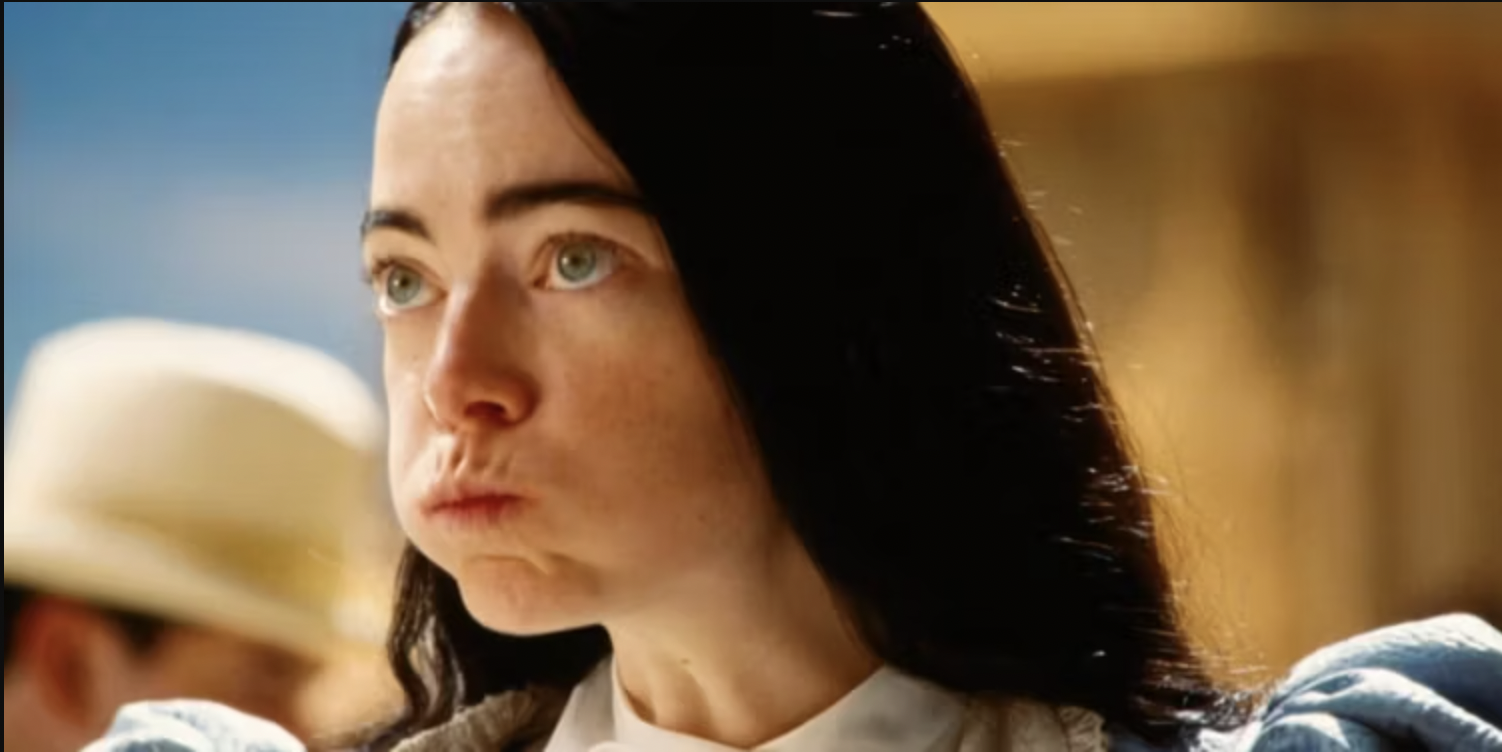I'm Baby: Poor Things (Yorgos Lanthimos, 2023)
It's not an act. I’m a very sexy baby.

What if Frankenstein’s monster had a Hot Girl Summer? This is the question posed by Poor Things, a movie in which a pregnant woman commits suicide and is discovered by a mad scientist, who puts her baby’s brain in her still-fresh adult corpse. The resulting baby-brained woman, Bella Baxter, lumbers around with her arms outstretched. She kills small animals and mutilates corpses. She has destructive tantrums in which she terrifies onlookers with her freakish strength. She says things like “Bella not safe with you” and “Bella want walking ice cream.” She becomes deeply enamored of old people who teach her how to read.
Bella is a big green lumbering Boris Karloff, in all respects but one: She’s played by, and therefore looks like, actress Emma Stone. The central gag of Poor Things is that if Frankenstein’s monster looked like Emma Stone, no-one would even notice that she was a monster. They’d all be too busy trying to fuck her. In a world where women are primarily valued in terms of their appearance, a woman can be an unholy abomination, or a literal toddler, and the men around her won’t notice that anything is amiss.

Poor Things is a “feminist” movie (sort of) (maybe) though its success on that front has been hotly debated. It’s a horror movie, sometimes, and mostly in terms of its aesthetic — Frankenstein and Bride of Frankenstein are always being invoked, but the movie it really reminds me of is Eyes Without a Face, the French film about a surgeon who abducts young women and peels their faces off in order to give them to his own mutilated daughter. However, for the most part, it is a sex comedy. A feminist sex comedy about fucking minors and/or corpses is a remarkably difficult thing to pull off.
Cards on the table: I really liked Poor Things. The performances are fantastic. (Willem Dafoe, as the mad scientist, is expectedly perfect, and Emma Stone really commits, but Mark Ruffalo, performing in the impression of Billy Zane from Titanic, nearly runs away with the whole movie.) The production design — steampunk Victorian cities against a sky full of swirling galactic nebulae — is lovely, sort of a Guy Maddin meets Trapper Keeper situation. I really love the screenwriter, Tony McNamara; he wrote The Favorite and The Great, and although Poor Things is an adaptation of someone else’s novel, McNamara’s voice is all over it. In short: The movie is fun as hell, and it looks great, which is all you can hope for in this world of ours.
It also completely falls apart if you think about it for more than two seconds, particularly when you think about it in terms of “feminism.” Analyzing the gender politics of Poor Things is a remarkably quick way to suck all the fun out of it, and I feel bad doing so. I think some of its feminist critics are applying a standard of realism that the filmmakers never intended. (Can a resurrected corpse with a baby brain give consent? No, because it can’t exist — however, in this fictional scenario, we’re told that Bella’s brain catches up to her body very quickly, and that she’s essentially a teenager by the time she starts having sex.) Still, there is no way around it. So let us venture forth, with the knowledge that a good time is still to be had should you skip the analysis and actually watch the film.